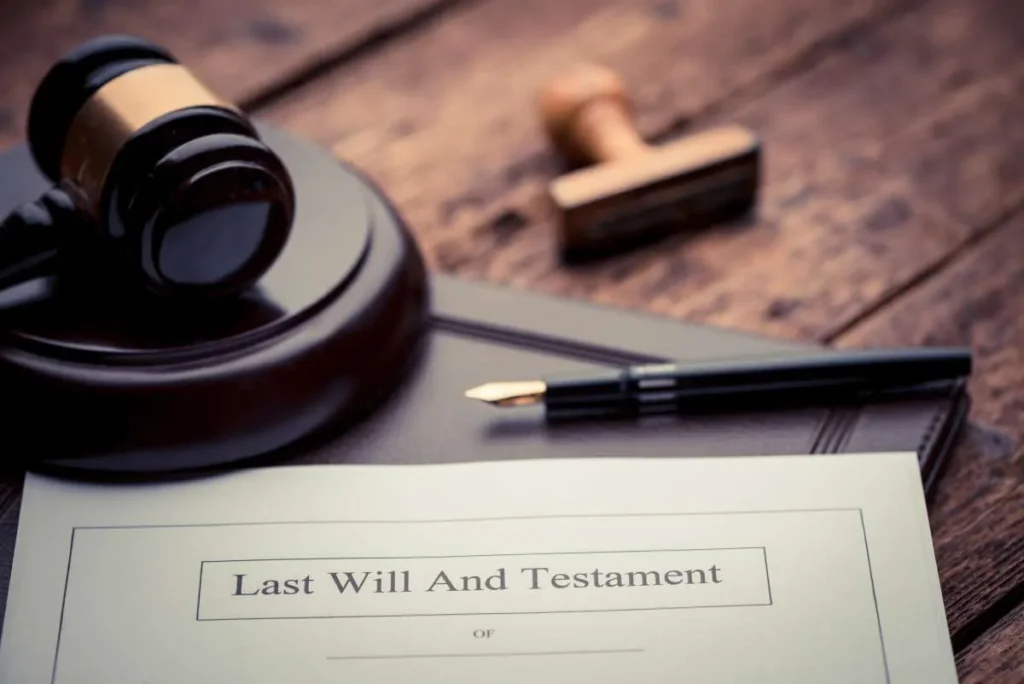When someone passes away in Texas, their estate doesn’t magically distribute itself. If there are assets left in their name—like a home, land, vehicles, or even bank accounts—probate may be legally necessary. But what happens if you don’t probate an estate in Texas? You may be surprised to learn that failing to probate can lead to serious problems, including title issues, lawsuits, and long-term headaches for heirs and beneficiaries.
This isn’t just a bureaucratic technicality. It’s a legal process with real consequences if ignored. In this article, we’ll break down why probate matters, what happens if you skip it, and how the fallout can affect property ownership, family relationships, and even your financial future. We’ll also walk you through real-life examples and practical insights that make the complex feel more manageable.

Why Probate Matters in the First Place
Before we dive into the risks, let’s first cover why probate exists. Probate is the court-supervised process of settling a deceased person’s estate. It allows for:
- Validating a will (if there is one)
- Identifying heirs and beneficiaries
- Appointing an executor or administrator
- Paying off debts and taxes
- Distributing remaining assets
In short, it creates a legal path for transferring property and settling claims. What happens if you don’t probate an estate in Texas is that none of these things happen officially. And that leads to serious consequences.
Real-Life Example: Rosa’s Inherited Nightmare
Rosa’s father passed away in Houston, leaving behind a modest house, some savings, and a pickup truck. Everyone in the family agreed Rosa should get the house. But since there was no mortgage, and Rosa was already living there, they didn’t think probate was necessary.
Fast forward three years: Rosa tries to refinance the house. The bank pulls the title and discovers it’s still in her father’s name. No probate was filed. Now, she can’t refinance, can’t legally sell, and the court process has become more complicated because of the time that’s passed.
This is a perfect example of what happens if you don’t probate an estate in Texas—the property gets stuck in legal limbo, and families are left dealing with messy consequences they never expected.
Title Problems: The Most Immediate Consequence
One of the biggest and most frustrating outcomes of failing to probate is that property titles don’t change hands legally. Here’s what that means:
- The deed to a house remains in the deceased’s name
- Cars can’t be retitled
- Bank accounts stay frozen
- Oil and gas royalties can’t be transferred
- Beneficiaries can’t sell or refinance property
You may use the property, but legally you don’t own it. And that creates a cascade of problems when you try to do anything that requires title verification.
Can You Still Claim the Property Later?
Many families ask, “Can we just probate it later if needed?” The answer is: maybe—but with complications.
In Texas, there’s a four-year deadline to probate a will from the date of death. After that, your options narrow significantly. You may have to:
- File for muniment of title, but only if no administration is needed
- Pursue heirship determination, which requires more court involvement
- Open a dependent administration, which is more costly and time-consuming

So yes, you can still go to court—but waiting too long can close doors or make probate much harder.
What Happens If You Don’t Probate and Someone Else Wants the Property?
Here’s where things can turn ugly. If no one takes legal steps to probate the estate, someone else can—and they might not be the rightful heir. Think about:
- Distant relatives filing claims
- Creditors initiating probate to get paid
- Ex-spouses or estranged family members stepping in
When no legal transfer occurs, you risk someone else seizing the opportunity to take what your family thought was theirs. What happens if you don’t probate an estate in Texas is that the door stays open for conflict.
Lawsuits Over Undivided Property
Let’s say the family agrees to “just leave things as-is.” That works—until it doesn’t.
Years down the road, someone may decide they want their “share” of the house, land, or bank account. Without probate, it’s still legally part of the deceased’s estate, and any heir has the right to demand a formal division.
That’s when lawsuits arise:
- Partition suits: where someone forces the sale of shared property
- Wrongful occupancy claims: if someone’s been living on estate property rent-free
- Fraud allegations: if one person has been collecting rent or using accounts improperly
These lawsuits aren’t rare. In fact, probate courts in Texas see them every day—often years after someone has died.
Tax Consequences and Missed Deductions
Another overlooked result of skipping probate? Taxes. If the estate isn’t probated, you may miss out on essential financial protections and benefits that could save thousands in the long run.
Step-up in basis for capital gains taxes (helpful when selling inherited property)
Without probate, heirs may be forced to pay capital gains on the full appreciated value of property, rather than just on the gains after inheritance. That step-up in basis can dramatically reduce your tax liability—but only if the transfer is legally recognized.
Deducting estate expenses
Court-approved probate allows the estate to deduct certain expenses like legal fees, funeral costs, and debts—reducing overall taxable income. Skipping probate forfeits that benefit and can inflate your tax bill.
Filing proper income taxes for the estate
The IRS still expects the estate to file returns for any post-death income it earns, like rent or interest. Without formal probate, these filings may go ignored, leading to audits or penalties down the line.
And if debts go unpaid, creditors may eventually file liens against estate property—even if you’re already living there. That lien could block refinancing, create legal stress, or force a sale if unresolved.
Real-Life Story: The Land No One Could Sell
In a rural part of East Texas, the Johnson family inherited 25 acres of land after their grandfather passed away. No one probated the estate. For 20 years, the family treated the land as theirs—growing crops, leasing part of it to hunters, and even building a small cabin.
But when a developer offered to buy the property, the title company refused to close the deal. Why? The land was still legally in the grandfather’s name. Since no probate was ever filed, the developer walked away, and the Johnsons lost out on a six-figure sale.
This is what happens if you don’t probate an estate in Texas—property becomes essentially unsellable until legal ownership is resolved.
When Does Probate Not Apply?
It’s worth noting that not every estate requires probate. You might avoid it if:
- Assets were held in a living trust
- Accounts had named beneficiaries
- Real estate had a transfer-on-death deed
- All assets were jointly owned with survivorship rights
In these situations, legal ownership may pass outside of probate. But these strategies only work if planned before death. Otherwise, skipping probate is risky.

What If There’s No Will?
If the deceased died without a will, Texas law determines the heirs through intestate succession. But you still need to go to court to:
- Determine heirship
- Assign an administrator
- Legally transfer property
Skipping probate doesn’t change the law—it just delays its enforcement. And often, the longer you wait, the harder it becomes to prove who’s entitled to what.
The Role of Muniment of Title
Sometimes families hear about a “simplified probate” process in Texas called muniment of title. This option allows you to transfer real estate without a full probate process—but only if:
- There’s a valid will
- There are no unpaid debts (except a mortgage)
- No administration is necessary
It’s a great tool, but it still requires court approval. If you skip that step entirely, even this shortcut won’t save you from title problems later.
How to Fix the Problem If You Waited Too Long
If it’s been more than four years since death and you never filed probate, don’t panic—but do act. Time complicates things, but Texas law does offer paths to clean up what’s been left unresolved.
Step 1: Talk to a Probate Attorney
An experienced attorney can review your options based on your timeline, assets, and family dynamics. They’ll also help you determine if an alternative like a small estate affidavit or muniment of title might still be viable based on your facts.
Step 2: Consider a Heirship Determination
This is a court process to establish legal heirs when no will was probated in time. It’s especially important when real estate is involved or multiple heirs disagree on what happens next.
Step 3: Avoid DIY Mistakes
Trying to transfer title using affidavits alone, without court approval, often causes title companies to reject your documents. Even if it seems straightforward, improper filings can delay your ability to sell or refinance property for years.

Final Thoughts: What Happens If You Don’t Probate an Estate in Texas?
So, what happens if you don’t probate an estate in Texas? The short answer: nothing good. Titles remain clouded. Properties become unsellable. Bank accounts stay locked. And worst of all, lawsuits and family disputes can emerge long after emotions should have settled.
Probate may seem like a hassle—but it’s the legal bridge between a person’s death and the future of their assets. Skipping it doesn’t make the problem go away. It just pushes it down the line until it’s harder, messier, and far more expensive to fix.
The good news? If you act early and wisely, probate can be manageable. And if you’ve waited too long, there are still solutions—but you’ll need to move quickly and strategically.








